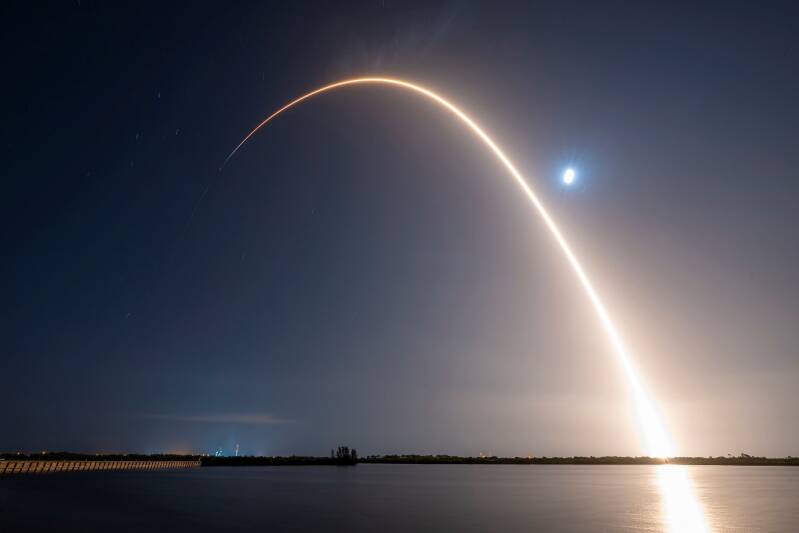Amazon marked a major milestone in its ambitious Project Kuiper initiative early Wednesday with the successful launch of 24 broadband internet satellites aboard a SpaceX Falcon 9 rocket. The mission, designated Kuiper Falcon 1 (KF-01), lifted off at 2:30 a.m. EDT (0630 UTC) from Space Launch Complex 40 at Cape Canaveral Space Force Station in Florida.

Credit: SpaceX
Just 56 minutes after liftoff, the Falcon 9 began deploying the satellites into a 289-mile (465 km) orbit. Amazon’s ground teams in Redmond, Washington, will conduct initial health checks before maneuvering the satellites to their final operational orbit of 391 miles (630 km).
The launch featured the debut flight of Falcon 9’s booster B1096, which successfully landed on the droneship A Shortfall of Gravitas approximately 8.5 minutes after launch. This marks the 118th landing on that vessel and the 476th booster recovery overall for SpaceX.
This mission represents Amazon’s third Kuiper launch and the first on a SpaceX rocket, following two earlier flights on United Launch Alliance’s (ULA) Atlas V that deployed 27 satellites each. With KF-01’s success, Amazon now has 78 satellites in orbit toward its planned 3,236-satellite constellation.
Under Federal Communications Commission (FCC) regulations, Amazon must have at least 50% of the constellation—1,618 satellites—deployed by July 30, 2026.
Amazon first secured nine dedicated Atlas V flights in 2021 and later announced a massive procurement in April 2022 for at least 68 more launches across three providers:
- 38 launches with ULA’s Vulcan rocket
- 18 launches with Arianespace’s Ariane 6
- At least 12 launches with Blue Origin’s New Glenn, with options for 15 more
Initially absent from the lineup was SpaceX, despite its industry-leading launch cadence. This omission sparked criticism from investors and led to a lawsuit in August 2023, alleging that personal rivalry between Amazon founder Jeff Bezos and SpaceX CEO Elon Musk influenced the decision. Amazon rejected these claims, calling them “completely without merit.”
In December 2023, Amazon reversed course and announced a deal with SpaceX for three Falcon 9 launches, citing the need to accelerate deployment. “Our earlier procurement provides enough capacity to launch the majority of our constellation, and the additional launches with SpaceX offer even more capacity to support our schedule,” Amazon said in a statement.
The deployment schedule remains aggressive. ULA plans to launch its first 45 Kuiper satellites on a Vulcan rocket in late 2025 after fulfilling national security missions. Meanwhile, Ariane 6 has completed two flights and is targeting an August launch for EUMETSAT, while Blue Origin’s New Glenn has yet to fly its next mission or announce a Kuiper launch date.
Amazon aims to begin offering Project Kuiper services once it has sufficient satellites in orbit to support initial operations.


Add comment
Comments